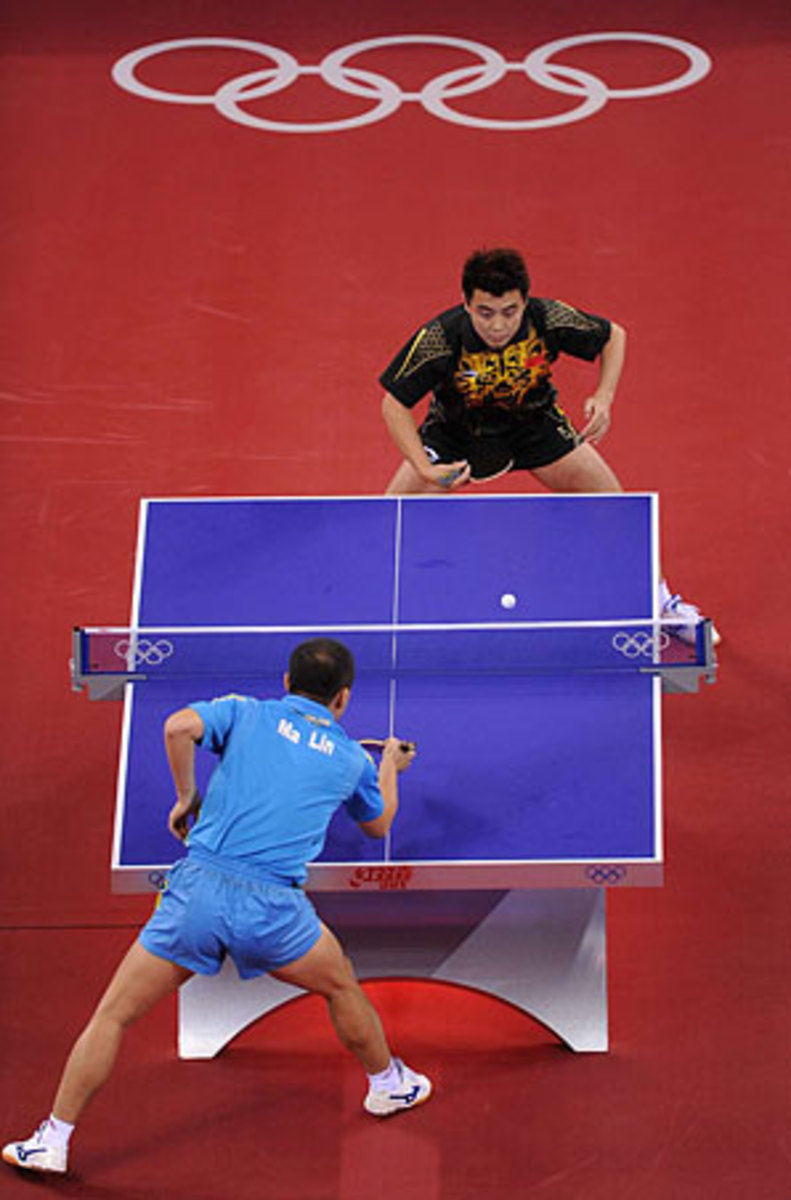Longtime bridesmaid Ma Lin enjoys rare moment on summit


At just 9 by 5 feet, it's the smallest field of play in the Olympics, but here in Beijing the playing surface for table tennis is the most intensely watched 45 square feet in the entire country. A capacity crowd packed the Peking University Gymnasium for the men's singles gold medal match Saturday night for a friendly: China's Wang Hao versus China's Ma Lin.
The gym resembled a black box theater, but the venue's modest size belies its significance. Many of the city's numerous universities have been called into service to host events. But the fact that PKU -- considered the country's top institution (the Harvard of China, if you will) -- was picked to host table tennis points to its elite status in the nation's eyes.
Westerners accustomed to thinking of Chinese athletes as anonymous, interchangeable, crimson-clad competitors may have found it strange to see sections of the crowd cheering on the players as individuals, by name. Although the atmosphere was far from ugly, it was revealing to see that once the rooting factor of patriotism is removed, the Chinese are as capable as anyone of picking favorites and choosing sides.
I asked a section of fans who chanted Ma Lin's name throughout the match how they picked their favorite, the 28-year-old World No. 2 who had never managed to win a world or Olympic title.
"He's waited too long for this," they replied. "He's never been the champion."
Pitted against the younger (24), more popular, higher-ranked Wang (No. 1 in the world), Ma was the underdog but drew his own passionate supporters. Even the Swedes in the stands watching their countryman Jorgen Persson eventually lose to Wang Liqin (of China, natch) in the preceding bronze medal match got into the spirit, waving their yellow-and-blue flags to the tune of "Ma Lin, jia you! Ma Lin, jia you!" (Jia you translates to "add oil" or "go harder!")
In the end, Ma came out on top, claiming the gold medal, 11-9, 11-9, 6-11, 11-7, 11-9. "There's a Chinese saying: It takes 10 years of grinding to make a quality sword," said the national team coach, Liu Guoliang, reminding Ma about his runner-up finish at the 1999 world championships. "Today you used your sword."
